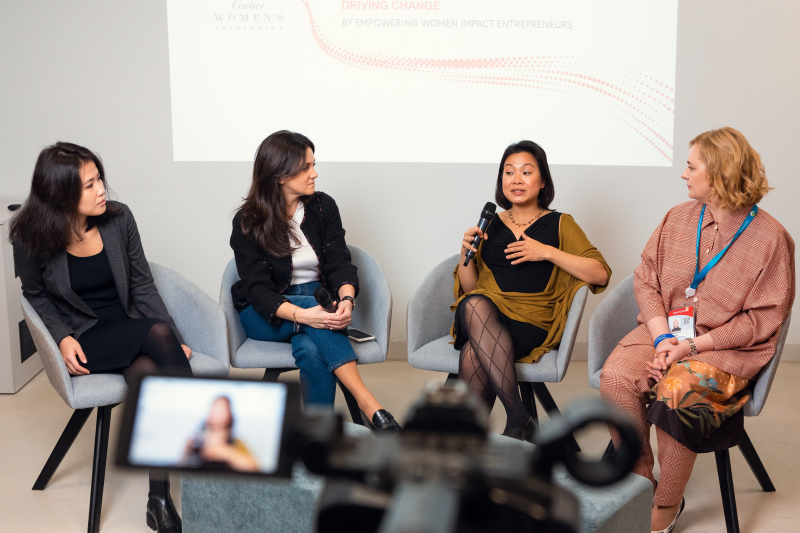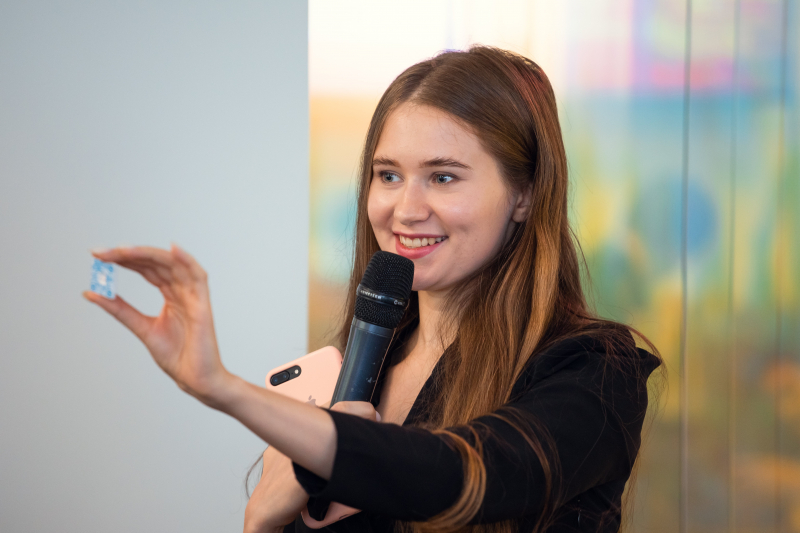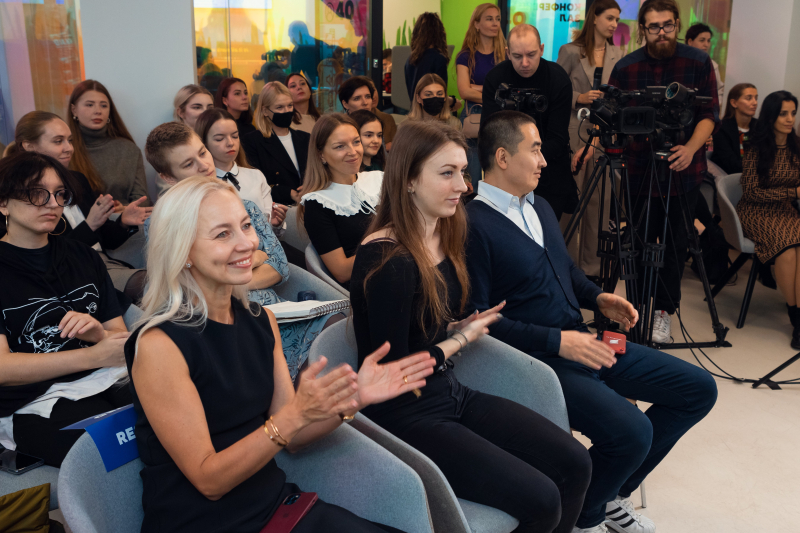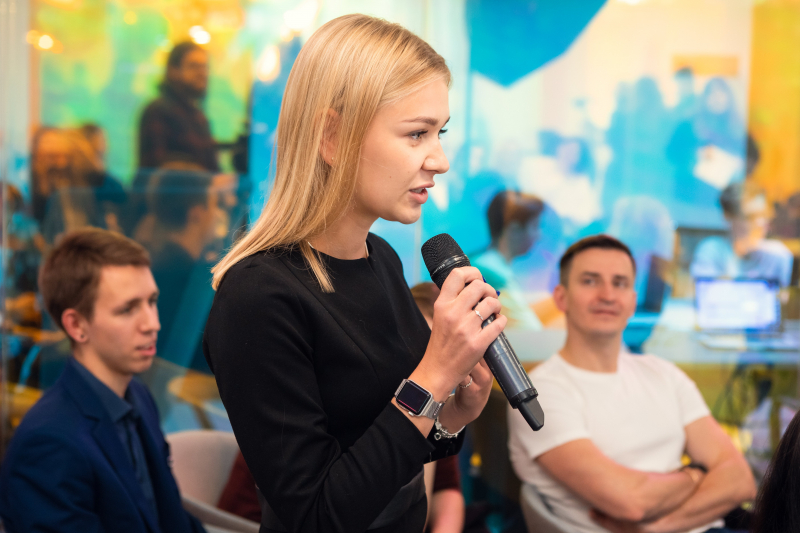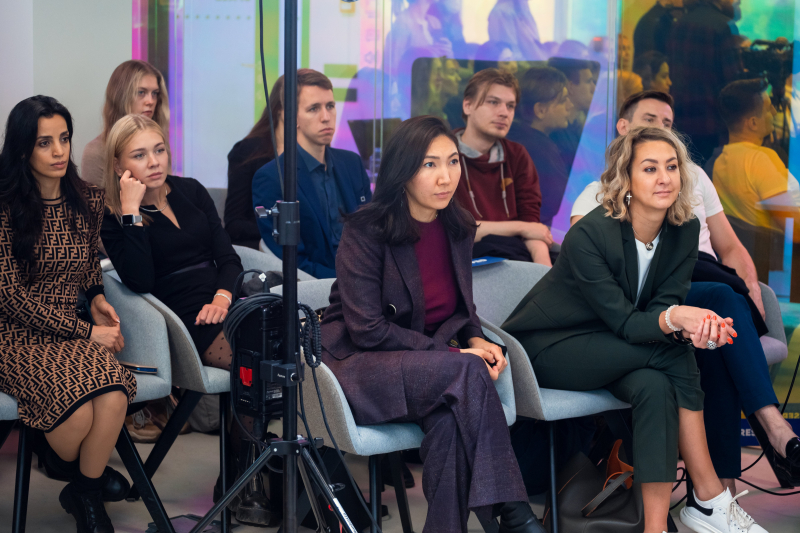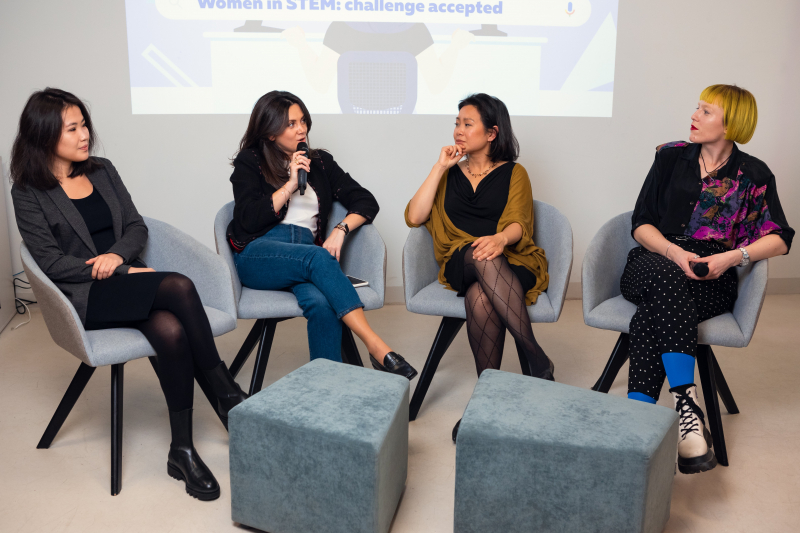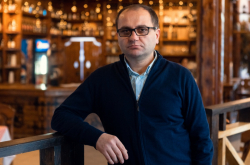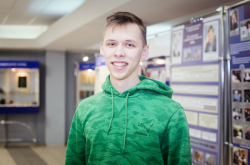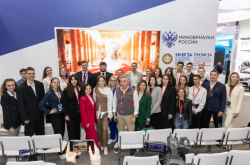Among the participants were Wingee Sampaio, head of the Cartier Women’s Initiative, Victoria Krikheli, head of PR and corporate projects at Cartier Russia, Yanina Novitskaya, managing director at Cartier Russia & CIS, and representatives of ITMO: Ekaterina Skorb, head of the Infochemistry Scientific Center; Assel Romanova, a senior lecturer at ITMO’s Faculty of Software Engineering and Computer Systems and a developer at JetBrains Academy, Google Developer Group, and Kotlin User Group; Kseniya Buraya, a PhD student at ITMO and an ML engineer at Yandex.Maps; and Daria Denisova, head of the university’s Center for Science Communication.
The discussion centered on several questions: do women still face difficulties in their careers and do they need additional support? Is that still a relevant issue in our seemingly progressive world?
A livestream recording of the talk
Wingee Sampaio, the head of Cartier Women’s Initiative, explained why the women’s community still needs support and what the chief goal of the initiative is. In her own words, it all started 15 years ago with a special award for female entrepreneurs whose work has made an impact on society at large or a specific community. Having spoken to the nominees and winners and learning about their personal experience, it became clear to the company’s representatives that they all faced the same challenges. It was decided that the program should be reimagined as a comprehensive support program in several fields at once.
Nowadays, Cartier Women’s Initiative provides its participants with financial support for their ideas and projects, as well as an educational program that covers the economical aspects of business management along with soft skills necessary for any entrepreneur. Finally, the program also seeks to build an international like-minded community where participants can receive support and build useful connections.
“The initiative’s vision is that of a world in which every woman can unlock her full potential. We believe that each of us already knows what she wants and can do. But oftentimes, we don’t have the courage to express ourselves and become aware of our potential. In 15 years, we’ve seen a great number of women create amazing things; women who were inspired to take action; women who dedicate their lives to solving challenges that exist in their environment. We’ve also understood that this path often brings loneliness and difficulties. Now, we’re building a community for such women and supporting research that seeks to change the established order of things,” said Wingee Sampaio.
Wingee Sampaio, head of Cartier Women's Initiative. Photo by Dmitry Grigoryev / ITMO.NEWS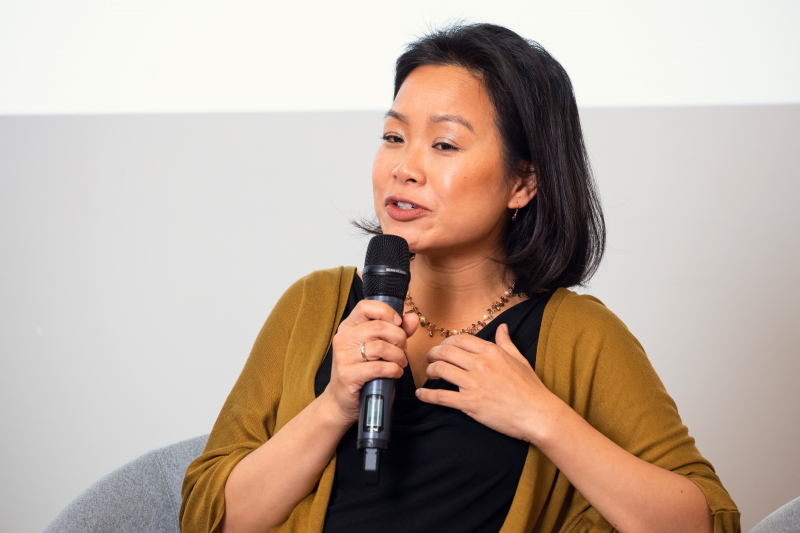
She also noted that, judging by the observations made by the initiative’s curators, women in the field of high tech encounter even more challenges and obstacles; that is why it was decided to introduce a special program for that category of female specialists.
Kseniya Buraya, an ITMO graduate and PhD student who has worked for a number of years in the IT industry, including at corporations such as Yandex and VK, concurred:
“We see that a majority of leadership positions in IT are held by men. In my work environment, there is only one female head of department. The main challenge for women in this industry is exhibiting their qualities as leaders. It’s difficult to even start that conversation,” said Ms. Buraya.
ITMO University's digital campaign for young women in science and tech
She also noted that this situation can only be resolved not through confrontation between men and women, but through working together for common good and a more just world.
The idea of not opposing men, but inviting them to contribute to discussions and subsequent changes was supported by Yanina Novitskaya – the first woman in 15 years to head a regional Cartier office. In her opinion, diversity is the perfect source of inspiration for collaborative creation that benefits everyone. But as some of the discussion’s audience members noted, men have been in leadership positions for so long that they wouldn’t be able to change their attitude and paradigm of thought so quickly even if they wanted to.
The suboptimal state of affairs for women in IT has prompted the establishment of a community called ITMO Female Club for students of tech-related fields. Its ideologist and founder Valentina Smirnova, a Master’s student at the Information Technologies and Programming Faculty, noted that young female specialists desperately need a community where they would feel comfortable.
Yanina Novitskaya, managing director at Cartier Russia & CIS (left), and Valentina Smirnova, a Master’s student at the Information Technologies and Programming Faculty (right). Photo by Dmitry Grigoryev / ITMO.NEWS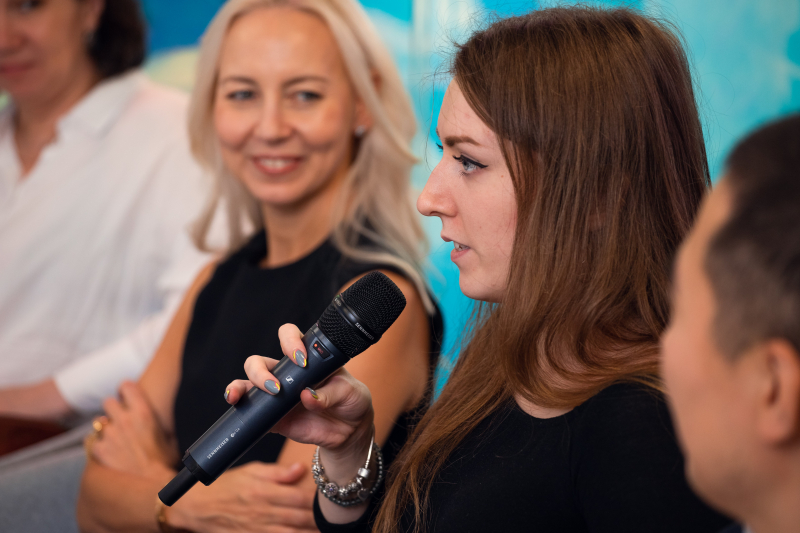
“We created this club because, in my own experience, there is indeed an issue of sensible attitude towards women who are building their career. When I’m at work, I want to be a good specialist first and foremost; I can be a woman at home. And that is difficult to explain to others at times. I want to build a community that would help young women feel comfortable at work and recognize their value as specialists,” she said.
Olesya Baraniuk, the deputy head of ITMO University’s Technopark, noted that the university provides conditions for young women’s active involvement in science, tech, and startups. For instance, according to her calculations, out of 600 applications for the pre-acceleration program collected this September, 43% came from women.
Olga Orlova, a manager and lecturer at the Faculty of Technological Management and Innovations, also shared some stats: more than 60% of participants of the Startup as Thesis initiative are female. Ekaterina Skorb, head of the university’s Infochemistry Scientific Center, noted that the ratio of male and female researchers at the center is 50/50.
The main question with which the discussion concluded was: why is it that, despite such major changes in society, social policy, and gender roles, do women still face the same challenges? Wingee Sampaio noted that the fight for gender equality has been going on for some 200 years – so it’s unlikely to come to an end in our lifetime. And while 15 years is not enough to change the world, it’s enough to change the lives of many, many women.

Last week’s discussion was not the first visit of representatives of Cartier to ITMO University. The event was conceived as part of the company’s growing partnership with ITMO and is a logical continuation of the partners’ agenda – which focuses on interdisciplinary development of practices of communication, storytelling, and digital tools, says the discussion’s host, Daria Denisova, head of the Center for Science Communication. She also notes that collaboration with the company is in line with the goals and tasks of the university’s latest initiatives.
“This isn’t the Cartier team’s first time at ITMO; we’ve already been together to the Museum of Optics, the ChemBio Cluster, and the Infochemistry Scientific Center, and we’re very glad to be able to discover new reasons to share insights. We’ve discussed collaboration in various fields: from joint educational projects and multimedia projects to Art & Science exhibitions and interactive games – and, since recently, the participation of our female researchers and their companies in events held by Cartier Women’s Initiative,” she comments.
